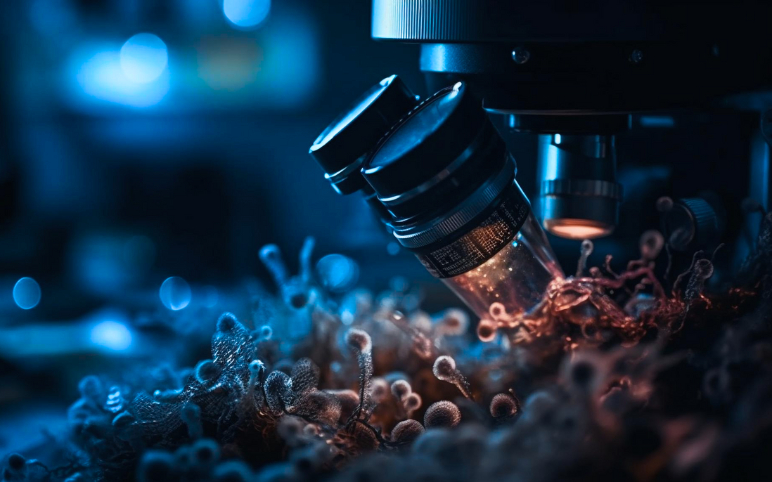Joe Kiani, Founder and CEO of Masimo, said, “This is an important milestone for better health outcomes. For the first time caregivers can get customized notifications, based on data from an unobtrusive pulse oximeter worn on the wrist of a patient or loved one, in situations where it’s logistically difficult to provide care in person. Masimo W1 Medical with Masimo SafetyNet opens up a world of possibilities for caregivers looking to improve quality of care and ultimately improve outcomes for those they care for.”
Mr. Kiani continued, “We’ve been excited to see how institutions in Europe and the Middle East are already integrating Masimo W1 with Masimo SafetyNet into their practices in a variety of innovative ways, such as programs that support more confident patient discharge, help anesthesiologists better understand each patient’s unique physiology prior to surgery, and drive toward more predictive, rather than reactive, models of care. And now, with this FDA clearance, we can not only bring these capabilities to the U.S., but we can allow regular people to take better care of each other.”
As per DelveInsight’s “Pulse Oximeters Market Report,” the pulse oximeters market was valued at USD 2.16 billion in 2023, growing at a CAGR of 10.73% during the forecast period from 2024 to 2030, to reach USD 3.98 billion by 2030. The demand for pulse oximeters is primarily attributed to the sudden outbreak of the COVID-19 pandemic, the rising prevalence of various respiratory disorders coupled with the growing geriatric population, technological advancement, and the availability of new products.
Stereotaxis Received the CE Mark in Europe and Submitted a 510(K) Application in the US For Their Next-Generation Robotic System, Genesisx
On August 12, 2024, Stereotaxis, a pioneer and global leader in surgical robotics for minimally invasive endovascular interventions, announced that it received the CE mark in Europe and had submitted a 510(k) application to the FDA in the US for its next-generation robotic system, GenesisX.
GenesisX built upon the established benefits and performance of Robotic Magnetic Navigation (RMN) systems while reducing the complexities and barriers associated with adopting the technology in hospitals. Previously, preparing an operating room for an RMN system required significant structural modifications, such as installing thousands of pounds of magnetic shielding in the walls, reinforcing the floor, providing high electrical power, and extensive cabling through conduits between the operating room and a dedicated cabinet room. This process involved months of planning and coordination between site planners, architects, and contractors.
GenesisX addressed these challenges by utilizing smaller magnets and integrating magnetic shielding into its own structure, eliminating the need for wall shielding. It did not require structural anchoring through the floor and operated using standard 120/230V power outlets. A single fiber was routed from each robot to the system cabinet, which was 80% smaller than the previous Genesis cabinet and could fit under a table in the operating room. Smaller and lighter than any earlier generation system, GenesisX maintained the speed, responsiveness, and efficient workflow of its predecessor while laying the groundwork for future innovations.
“We are excited to introduce GenesisX and share the achievement of these significant milestones,” said David Fischel, Chairman and CEO. “Medical innovation only realizes its full potential to advance and improve patient care if it is designed to be broadly accessible. The clinical value of Stereotaxis’ robotic technology has been extensively demonstrated yet difficult to access for the vast majority of interested physicians and hospitals. GenesisX is strategically transformative as it supports broad adoption of robotics in electrophysiology and across endovascular interventions.”
As per DelveInsight’s “Surgical Navigation Systems Market Report,” the global surgical navigation systems market was valued at USD 7,753.34 million in 2023, growing at a CAGR of 6.76% during the forecast period from 2024 to 2030. The demand for surgical navigation systems is primarily being boosted by the increasing prevalence of various chronic diseases such as stroke, Alzheimer’s, cerebrovascular disease, and others. Further, the rising incidences of orthopedic disorders, especially among the geriatric population, along with increasing demand for minimally invasive surgical procedures, and growing activities for research and development for surgical navigation systems are thereby contributing to the overall growth of the surgical navigation systems market during the forecast period from 2024 to 2030.
Replimune Announced the First Patient had Been Dosed in the IGNYTE-3 Clinical Trial for Advanced Melanoma
On August 13, 2024, Replimune Group, Inc., a clinical-stage biotechnology company leading the development of a novel class of oncolytic immunotherapies, announced that the first patient had been randomized and dosed in the IGNYTE-3 study. This global Phase 3 clinical trial evaluated the efficacy and safety of RP1 (vusolimogene oderparepvec) in combination with nivolumab in patients with advanced melanoma who had either progressed on anti-PD1 and anti-CTLA-4 treatments or were ineligible for anti-CTLA-4 therapy.
The IGNYTE-3 trial (NCT06264180) enrolled 400 patients to evaluate the combination of RP1 and nivolumab against a predefined set of physician’s choice treatment options. This study focused on patients with advanced melanoma who had progressed on anti-PD1 and anti-CTLA-4 therapies or were deemed ineligible for anti-CTLA-4 treatment. The primary endpoint of the study was overall survival (OS), while key secondary endpoints included progression-free survival (PFS) and objective response rate (ORR).
“The start of the IGNYTE-3 trial and randomization of the first patient is an important milestone in advance of our planned BLA submission of RP1 in advanced melanoma later this year,” said Kostas Xynos, MD, PhD, MBA, Chief Medical Officer at Replimune. “This trial is important because it is intended to both support global regulatory interactions and access, and to serve to confirm the clinical benefit reported from the registration intended Phase 2 IGNYTE cohort in anti-PD1 failed melanoma in June.”
“Clinical trials like IGNYTE-3 are important in the melanoma community and we are excited that another study is open for physicians and patients to consider,” said Kyleigh LiPira, CEO of the Melanoma Research Foundation. “As a patient advocacy organization, our mission is to eradicate melanoma by accelerating medical research while educating to and advocating for the melanoma community. Creating awareness for clinical trials is an important part of that mission.”
According to DelveInsight’s “Immunoassay Market Report,” the global Immunoassay market is poised for significant growth, projected to achieve a remarkable CAGR of 7.53% during the forecast period from 2024 to 2030. The demand for immunoassay is primarily being boosted by the increasing prevalence of chronic disorders such as cancers, and lifestyle disorders such as diabetes mellitus, among others. The increase in various oncological disorders such as breast cancer and prostate cancer is a key factor influencing the positive growth of the market. Further, the rising awareness among people regarding early disease diagnosis is also contributing to the overall growth of the immunoassay market during the forecast period from 2024 to 2030.
Daré Bioscience Announced the Publication of Positive Findings From the Phase IIb RESPOND Clinical Study Of Sildenafil Cream, 3.6%, in the Journal of Sexual Medicine
On August 13, 2024, Daré Bioscience, Inc., a leader in innovation for women’s health and wellbeing, announced that additional data from the exploratory Phase 2b RESPOND clinical study of Sildenafil Cream, 3.6%—an investigational topical cream formulation of sildenafil developed as an on-demand treatment for female sexual arousal disorder (FSAD)—had been published in The Journal of Sexual Medicine.
The exploratory Phase 2b RESPOND study was specifically designed to identify the patient population that experienced the most significant improvement from Sildenafil Cream and to determine the patient-reported outcomes (PRO) measures that best reflected that improvement. The patient population and endpoints proposed to the U.S. Food and Drug Administration (FDA) for Phase 3 clinical development were those where Daré’s exploratory post-hoc analyses of the Phase 2b study data revealed statistically significant and meaningful patient improvement. Daré had previously announced a positive end-of-Phase 2 meeting with the FDA, which supported the advancement of Sildenafil Cream for the treatment of FSAD, and continued to engage with the FDA on the development program for Sildenafil Cream as a treatment for FSAD.
FSAD, as described in the DSM-IV, was a condition characterized primarily by a persistent or recurrent inability to attain or maintain sufficient genital arousal—specifically, an adequate lubrication-swelling response—during sexual activity. This often resulted in distress or interpersonal difficulties. Clinically, FSAD was analogous to erectile dysfunction (ED) in men. Similar to ED, FSAD was associated with insufficient blood flow to the genitalia.
“In this first-of-its-kind study in FSAD patients, we are very pleased to be able to share these data,” said Sabrina Martucci Johnson, President and CEO of Daré Bioscience. “Being able to show consistent results from patient reported outcome measures, regardless of whether she is recalling her experiences over the last month or the last day, provides important optionality as we consider how to clinically measure the impact of Sildenafil Cream on patients with FSAD.”
“This preplanned subset analysis was intended to investigate whether there were differences in outcomes when assessing arousal sensation on 24-hour vs 1-month PRO instruments,” said Dr. Annie Thurman, MD, FACOG, Medical Director at Daré Bioscience. “We were thrilled to see the strong correlation between the 24-hour recall eDiary and the 1-month recall instrument scores since the 1-month recall is significantly less burdensome for patients. With a condition that’s often dismissed and stigmatized, it’s important to show that we can collect accurate data to assess efficacy of Sildenafil Cream in a way that’s easily manageable for patients.”
According to DelveInsight’s “Erectile Dysfunction Devices Market Report”, the global erectile dysfunction devices market was valued at USD 1.77 billion in 2023, growing at a CAGR of 9.46% during the forecast period from 2024 to 2030, to reach USD 1.77 billion by 2030. The erectile dysfunction devices market is expected to witness significant growth owing to the growing cases of erectile dysfunction, increase in the geriatric population of men, sedentary lifestyle that involves smoking, alcohol consumption, obesity, and technological advancements among erectile dysfunction devices product development.
Baxter Announced that it Reached a Definitive Agreement to Divest its Vantive Kidney Care Segment to Carlyle For USD 3.8 Billion
On August 13, 2024, Baxter International Inc., a prominent global medtech leader, and funds managed by the global investment firm Carlyle announced that they signed a definitive agreement for Carlyle to acquire Baxter’s Kidney Care segment. The segment, to be renamed Vantive, was acquired for USD 3.8 billion.
Under the terms of the definitive agreement, and subject to certain closing adjustments, Baxter received approximately USD 3.5 billion in cash, with net after-tax proceeds estimated to be around USD 3 billion. Baxter announced its intention to establish a standalone kidney care company in January 2023 as part of a broader strategic realignment aimed at enhancing future performance and creating value for all stakeholders. By March 2024, Baxter revealed it was exploring the potential sale of the segment. After assessing the financial impact of various separation options, management, and the Baxter Board concluded that selling the business to Carlyle would best maximize value for Baxter stockholders and position both Baxter and Vantive for long-term success. This move was expected to provide enhanced flexibility to deploy capital toward opportunities that would accelerate each company’s growth objectives. Baxter planned to use the after-tax proceeds from the transaction to reduce its debt, aligning with its stated capital allocation priorities.
Vantive was a leader in global kidney care, providing products and services for peritoneal dialysis, hemodialysis, and organ support therapies, including continuous renal replacement therapy (CRRT). The company employed over 23,000 individuals worldwide and achieved revenues of USD 4.5 billion in 2023.
“Today’s announcement represents another critical step forward in the strategic transformation process we announced in early 2023. As a result of this proposed transaction, Baxter will emerge a more focused and more efficient company, better positioned to redefine healthcare delivery and advance innovation that benefits patients, customers and shareholders,” said José (Joe) E. Almeida, chair, president and chief executive officer at Baxter. “I am confident that, under Carlyle’s stewardship and Chris Toth’s leadership, the Vantive team will continue to build on the business’s 70-year legacy as a pioneer in kidney disease and vital organ therapies.”
According to DelveInsight’s “Continuous Renal Replacement Therapy Machines (CRRT) Market Report”, the global continuous renal replacement therapy (CRRT) machines market was valued at USD 1.25 billion in 2023, growing at a CAGR of 7.39% during the forecast period from 2024 to 2030, to reach USD 1.92 billion by 2030. The demand for CRRT machines is predominantly attributed to the rise in the prevalence of acute renal failure or acute kidney injury (AKI) across the globe, the growing burden of ICU patients with AKI along with an increase in the incidence of sepsis, and significant technological advancements in the product line. The clinical advantage of CRRT over intermittent blood purification systems is also a prominent driving factor for the CRRT machines market.
Moximed Successfully Closed a USD 91 Million Series D Financing Round to Advance the Commercialization of the MISHA® Knee System, an Implantable Shock Absorber Designed for Knee Osteoarthritis
On August 13, 2024, Moximed, a pioneering medical device company dedicated to enhancing the care standards for individuals with knee osteoarthritis (OA), announced the successful closure of USD 61 million in Series D preferred stock financing, with an option to secure up to an additional USD 30 million. This financing round was spearheaded by Elevage Medical Technologies, a Patient Square Capital platform, and saw participation from new investors Cormorant Asset Management and Warren Point Capital, along with existing investors New Enterprise Associates (NEA), Future Fund, Advent Life Sciences, Gilde Healthcare, Vertex Ventures HC, GBS Venture Partners, and Morgenthaler Ventures.
Moximed harnessed the clinically established benefits of weight load reduction on affected joints to design and develop the MISHA Knee System. This system was intended to assist individuals with mild-to-moderate osteoarthritis in preserving their knee joints while maintaining an active lifestyle. Implanted through an outpatient procedure, the MISHA Knee System demonstrated effectiveness in alleviating pain, enhancing function, and, in some cases, delaying the necessity for total knee replacement.
“This financing is validation of the significant market opportunity for the MISHA Knee System,” said Chris Gleason, President and Chief Executive Officer of Moximed. “We are seeing tremendous interest from surgeons and patients, and we are excited to rapidly expand our commercial infrastructure to address evolving patient needs in this growing market.”
According to DelveInsight’s “Knee Reconstruction/Replacement Devices Market Report”, the knee reconstruction/replacement devices market was valued at USD 7.54 billion in 2023, growing at a CAGR of 4.52% during the forecast period from 2024 to 2030 to reach USD 9.78 billion by 2030. The knee reconstruction/replacement devices market is experiencing significant growth owing to the widespread instances of degenerative bone conditions like osteoarthritis and rheumatoid arthritis, the rise in product development & innovation activities, among others that are acting as key factors, thus contributing to the market growth of the knee reconstruction/replacement devices market during the forecast period from 2024 to 2030.



